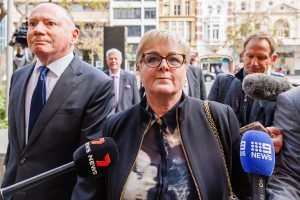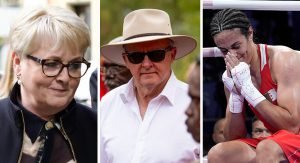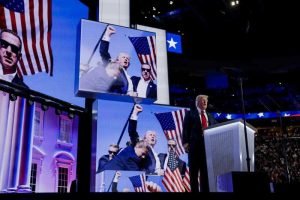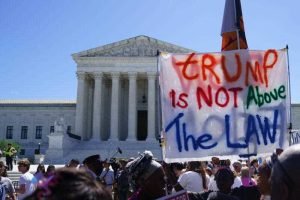Jo Dyer
Come to your census: data, Dutton and ducking for cover
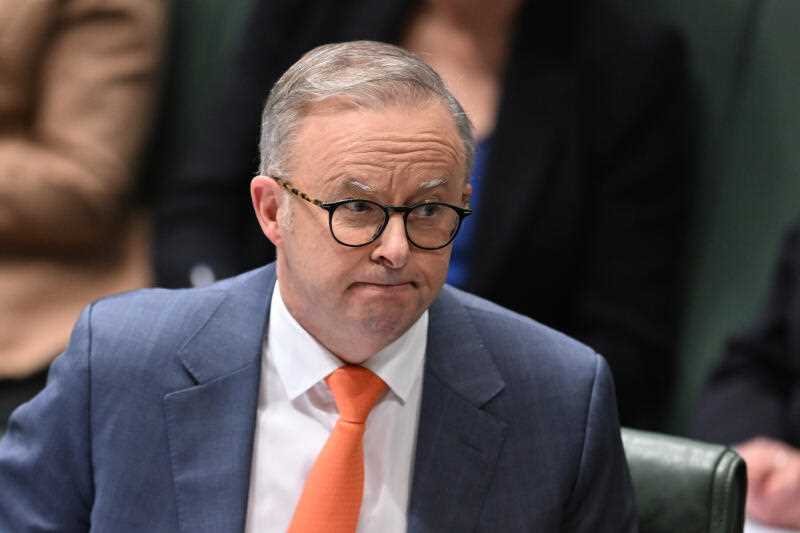
It was a quirk of fate that the latest research from our electoral Stadler and Waldorf that showed a full 24% of Australians surveyed couldn’t name a single thing the Government had done that positively impacted their lives landed in the same week a Romanesque list of its achievements was circulated online by the cohort of passionate ALP supporters who take great exception to any criticism levelled against the style or substance of the Albanese Government. But even the most rabid of Labor stans would have to concede it’s a special kind of fuck-up that transforms a data collection process two years hence into a symbol of Government gormlessness that dangerously boosts perceptions of a Prime Minister lacking ticker.
That the proposed breaking of an election promise in relation to the counting of the LGBTQ population in the census came hot on the heels of the Government slithering away from other decisions that would require fortitude and clarity to take and prosecute, including the backing away from the establishment of a Makarrata Commission, squibbing the comprehensive ban on gambling advertising and a lack of meaningful action against Qantas and Virgin’s anti-competitive practices in its long-awaited Aviation White Paper only served to reinforce a growing narrative of a Government afraid to govern, more focussed on its opponents’ potential reaction to a policy decision than its rightness.
The Makarrata backdown came first. We all know why. The bruising experience of the failed Voice referendum cost Albanese a lot of political capital and revealed again Peter Dutton’s instinctive racist bent and the depths he will plumb for political gain. On the eve of this year’s Garma Festival that he again failed to attend, Dutton announced that there would be “no Makarrata Commission” under a Government he led and “no revisiting of truth-telling”, as if Coalition Governments had visited truth-telling in the past rather than deride it as a Black Armband view of history. A Makarrata Commission is a “Voice 2.0”, sneered Dutton, which, given it would be legislated, should pose no problem given Dutton’s vocal support for a legislated rather than Constitutional Voice during the referendum campaign.
But Albanese did not take on the illogical hypocrisy of Dutton’s position. Despite allocating $5.8m as a down-payment “to commence work on establishing an independent Makarrata Commission to oversee processes of agreement making and truth telling” on what the 2022 budget papers described as a “$27.7m election commitment”, and the very specific meaning of Makarrata outlined in the Uluru Statement and reinforced in the budget papers, by the time Albanese got to Garma, he posited the literal Yolgnu translation of “coming together after a struggle” as his newly reduced definition of Makarrata and suggested his presence at the festival was itself “a starting point”.
It was not.
Peta Murphy wanted the 31 recommendations of the 169-page report of the bipartisan parliamentary inquiry into Online Gambling to be her political legacy. Released by the Social Policy and Legal Affairs Committee she chaired six months before her untimely death from breast cancer, the unanimous report with its carefully considered recommendations is, Murphy said, “an example of people from across the political spectrum working in the public interest and not considering partisan politics at all”. She was passionate about reducing the harm caused by the proliferation and accessibility of online gaming – a staunch advocate for a new national regulator and a comprehensive ban on gambling advertising phased in over 3 years to allow media outlets and sports codes time to find alternative revenue sources.
The staged implementation of the ban pre-empted the main argument now running against its key recommendation – that the loss of advertising revenue would mean the death knell for legacy media. Noting that broadcast media were making this claim at the same time as asserting the volume of gambling advertising was greatly exaggerated (and being “disinclined to provide evidence to the Committee” that supported either position), Murphy argued the rigorous road-map laid out in the report gave the broadcasters time to adjust to the new reality, just as they had previously done with the implementation of the tobacco advertising ban, and would prevent another generation of Australians from “experiencing escalating gambling harm”. The fact that the broadcasters argued that free sports broadcasts might be cut if a ban was pursued was evidence, she said, of the way sport and gambling were becoming dangerously intertwined, with sport reduced to mere content for frequent normalised gambling. It was, she believed, the “intention of the Government to be strong on harm reduction” – to stand up for those Australians whose lives had been torn apart by gambling and to ensure it didn’t happen to others.
As the Government prepares to ignore key recommendations on the ban and national regulator as a sop to the legacy media and the states and territories, it appears Murphy was wrong.
Is it also wrong to expect a Government to stand up to the airlines on behalf of the travelling public? Everyone agrees with data from the federal government competition taskforce demonstrating increasing competition on major routes can dramatically slash airfares. According to Assistant Minister for Competition Andrew Leigh in February, “the price per kilometre is halved when three competitors fly a route”, a statement made three months before new industry entrant Bonza went into voluntary administration and five months before Rex’s efforts to compete against the Qantas Virgin duopoly on Australia’s busiest routes came undone, at least partly because of slot-hoarding by the established players. The long-awaited Aviation White Paper proposes a suite of changes that could lead to better outcomes for consumers in years to come but doesn’t mandate them, proposing a future Ombuds system to mediate passenger complaints about delays and cancellations that Virgin and Qantas have rushed to embrace in lieu of an automatic system for compensation that would bring us in line with Europe and the US. A new tender has just opened to manage the allocation of Sydney’s contested take-off and landing slots and, despite advice from the likes of former head of the competition watchdog Rod Sims about its jaw-dropping conflict of interest, the incumbent Qantas and Virgin majority-owned company accused of locking out competitors will again be allowed to bid.
Such slow, slight progress only amplifies fears that Qantas remains a protected species, coming as it does after last year’s still inexplicable decision by Transport Minister Catherine King to deny Qatar Airlines’ request for extra flights into Australia in defiance of a Department of Transport recommendation – not at all at Qantas’s request, King insisted, despite having met multiple times with then Qantas CEO Alan Joyce whilst mulling it over and then offering eight different justifications for her decision.
And so we come to the decision to omit promised questions about sexuality and gender identity in the next census taken last week by the Prime Minister’s office, we were told, to avoid a divisive debate that would negatively impact vulnerable members of our community and, we weren’t told, distract from the Government’s laser-focus on the cost-of-living. If ever there was an Administration determined to govern in the most insipid of prose, this is it. Prepared to abandon an election promise to prevent Dutton campaigning against wokeness, it instead enabled credible accusations of weakness. It took a constituency for granted and ignored the practical and symbolic importance of their inclusion in the census just in case a reactionary Opposition Leader decided to react.
Politics is about the art of the possible and sometimes one needs to retreat and regroup before launching one’s next offensive. But this shouldn’t entail pretending words don’t mean what they do or sacrificing whole swathes of the community to protect the commercial or political interests of others. As Bill Shorten announced his impending departure from Parliament on Thursday with the Prime Minister by his side, he noted not all pointedly: “Labor is at its best when we know what we stand for – and we will fight for things.” Have the fight, Albanese. Prosecute the case. Because when the question is posed, “What has the Government ever done for me?”, the answer should be drawn from those circulating lists of judicious expenditure of hard-won political capital, and not “thrown me under a bus”.



